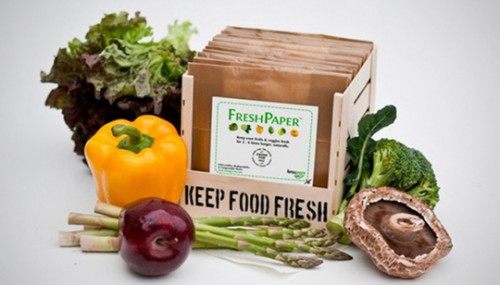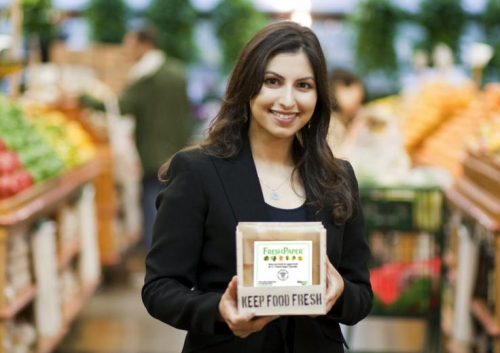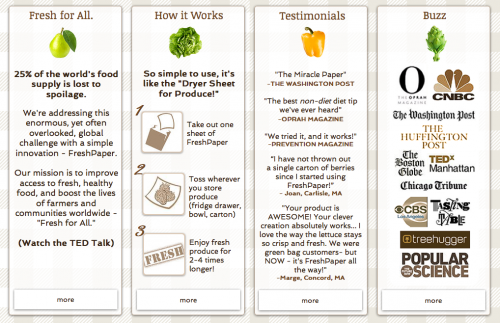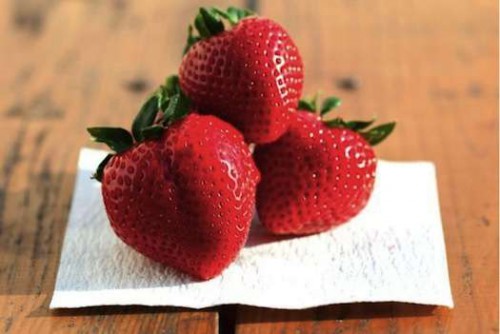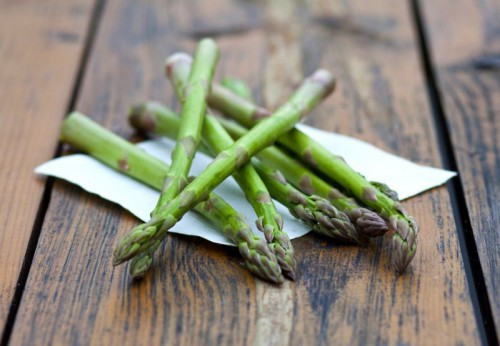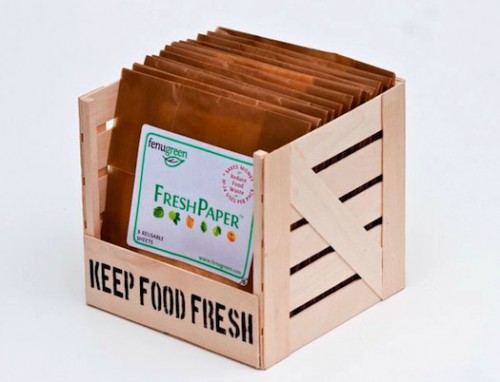Have you ever come home from the market with armfuls of fresh fruits and vegetables only to find them wilting and rotting in the fridge a mere week later? Or even get home from your local produce market with a box full and anxiously scarf down pounds of fruit before it goes bad? So, the question presents itself: How do we keep produce fresh from farm to fork for an extended amount of time, and thus reduce food waste? The solution came from Kavita Shukla who didn’t necessarily set out to solve the issue; her innovation developed from her middle school science project.
After years of research and development Fenugreeen FreshPaper was founded in 2010. The small magic squares of spice-infused paper were developed as a remarkably effective way to keep food fresh – extending the shelf life of produce up to four times longer than usual.
The exact combination of herbs and spices used in FreshPaper is proprietary, of course, however the only ingredient Shukla will reveal is fenugreek, a spice often used in Indian cooking, which also lent its name to her company.
How it works:
“It basically works by inhibiting bacterial and fungal growth, as well as the enzymes that cause fruit to over-ripen,” Shukla explains. “The concept is that you can just drop a sheet into a drawer or carton. Sometimes people put it into a fruit bowl. Our customers call it a ‘dryer sheet for produce.'” Each certified organic and biodegradable sheet lasts about two to three weeks, until its distinctive maple-like scent begins to fade. “That’s how you know it’s no longer active,” Shukla explains.
Today, FreshPaper is used by farmers and families across the world and most recently has been made available in Whole Foods Markets. The growing distribution has allowed her to pursue her efforts to begin a “get one, give one” program benefiting local food banks, starting with those affected by Hurricane Sandy in New York and New Jersey. Shukla says the brand has grown entirely by word of mouth, and credits much of this grassroots energy to increased environmental awareness in consumers.
“As we start to learn more about what’s going on with food waste, we realize that there’s water involved, there’s energy costs, land, resources, that go into creating the food that we eat,” she says. “And with the economy, people are becoming much more conscious of being wasteful at home, because they know not only are they struggling, but there are people in the U.S. that have no access to fresh food at all. It seems that everyone is coming to understand the importance of buying less or conserving what we have, and how that fits into the larger food crisis.”
Fenugreen is a social enterprise with the mission of “Fresh for All.”
[sources: FreshPaper, Fast Co.]
